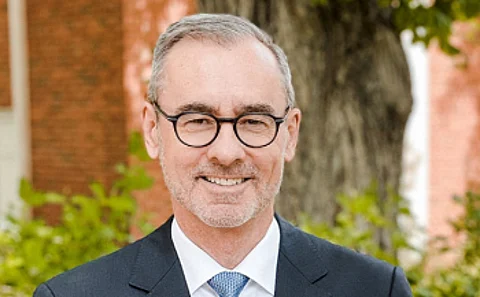

The University of Alberta has cured a longstanding problem in the field of psychiatry — insomnia.
No more blue pills. No more sleep hygiene discussions.
The university's President and Vice-Chancellor Bill Flanagan, in a letter published in the Edmonton Journal, says the institution is moving away from the philosophy of Diversity, Equity and Inclusion (DEI), which has raised Hell in education systems across the country.
But the school is likely to remain a harbinger of left-wing groupthink and sexual minority dominance — if the sleep-inducing letter is an indication.
The U of A is moving towards, "access, community and belonging," instead of DEI.
However, rainbow sidewalks and rampant wokeism are likely safe — tucked into the psyche of tenured professors, behind the fence of ideological monoculture.
"This shift is more than a change in terminology," wrote Flanagan.
"It reflects a deepened commitment to creating a university community where everyone can thrive. For some, the language of (DEI) has become polarizing, focusing more on what divides us rather than our shared humanity."
Flanagan said academic excellence and research are important to U of A — all universities would say the same. He said the university is committed to a thriving intellectual community.
Great.
"For many years, our efforts around equity, diversity, and inclusivity were aimed at advancing the university’s mission as articulated by President Tory," he wrote.
"However, the time has come for us to evolve — not just in words but in actions that better reflect the kind of community we strive to be, continuing to build on President Tory’s aspirations. This is why we are moving forward with a new framework and new language — access, community and belonging."
"Some perceive an ideological bias at odds with merit. Words matter, and this evolution aims to craft a shared narrative with aligned actions that resonate more universally, emphasizing common ground and fostering authentic connections," wrote Flanagan.
"Access, community, and belonging better highlight our aspirations. Access signals our ongoing work to remove financial and social barriers, ensuring equal opportunities for all. Community underscores our belief in collective well-being and shared purpose. Belonging reflects our goal to cultivate spaces where individuals feel valued for their unique contributions," he added.
"By ensuring a supportive community where barriers are removed and opportunities are accessible to all, we create a university where the best talent can emerge and thrive, driving academic excellence and research impact," he wrote.
"We expand our pool of talent, perspectives and ideas, driving innovation and accomplishment that reflects the full breadth of human potential," he added, noting it isn't the university’s job to take ideological positions.
His strongest point.
There are indications some Canadian post secondary institutions, in addition to U of A, are reconsidering DEI policies, but movement is slow.
There is pushback against some DEI policies, particularly those perceived as enforcing ideological conformity or impacting academic freedom, reported the National Post.
Some academics are calling for significant reform of DEI policies within the context of federally funded research, saying DEI initiatives may not align with principles of merit-based hiring and academic freedom.
